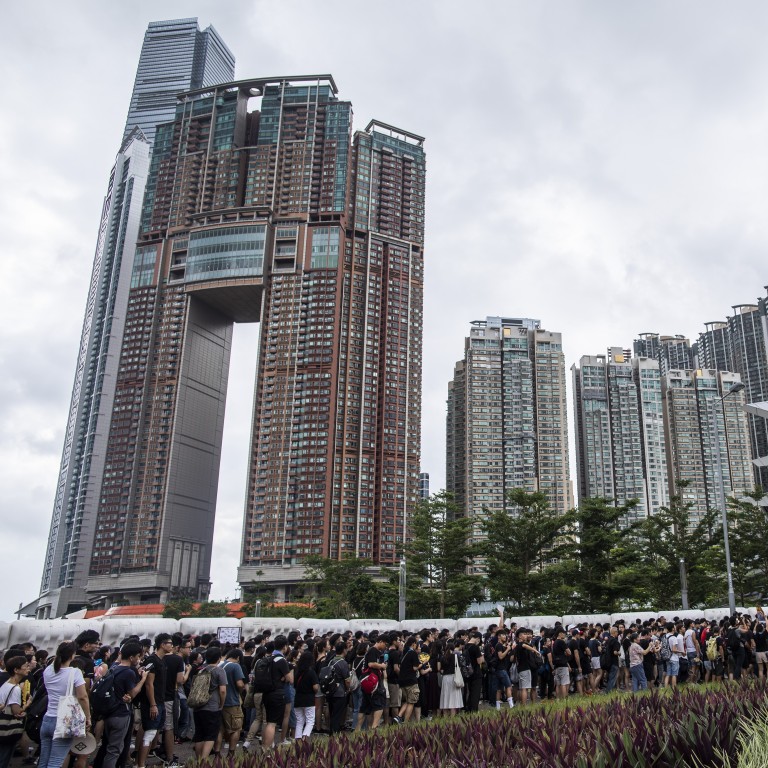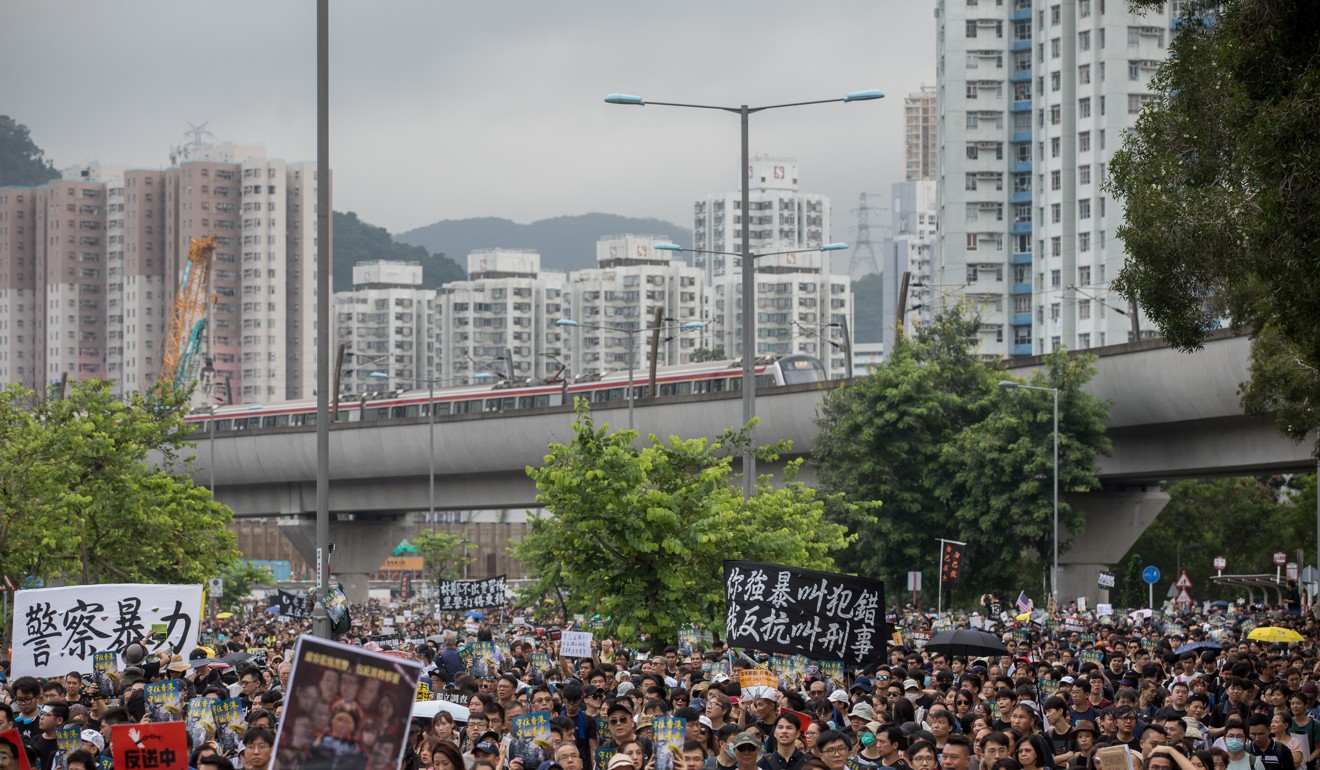
Why the extradition bill protests won’t burst Hong Kong’s property bubble
- Observers argue that a dip in sentiment due to the protests, higher mortgage rates and declining affordability should surely trigger a downturn
- But as the data shows, the property market is still red hot, and housing affordability is not significantly worse than at any time over the last decade
As protests against Hong Kong’s government and its masters in Beijing rumble on, an increasing number of financial investors are wondering whether the city’s summer of discontent will be the prick that finally bursts the local property market bubble.
Now suspicions are strengthening that the stopped clocks are at last telling the right time.
In recent weeks, the bears have highlighted a whole range of factors they say point to a steep and protracted sell-off in the local housing market.
Hong Kong’s property market has 10 more years in its bull run: UBS
In addition to the protests, the bears point to a sharp rise in Hong Kong dollar interest rates between the beginning of March and early this month, and a deterioration in the local property affordability index.
In the four months to early July, the one-month Hibor interest rate against which most local mortgages are priced rose from less than 1 per cent to almost 3 per cent.
At the same time, the affordability index – defined as the cost of servicing a new 60 per cent, 20-year mortgage on a 600 sq ft flat relative to median monthly income for households in private housing – rose to a painful 64 per cent.
Together, these factors – a dip in sentiment due to the protests, higher mortgage rates and declining affordability – should surely trigger the long-awaited downturn, argued the bears.

But if that is the case, Hongkongers don’t seem to have got the memo. Despite June’s massive street protests, at the end of the month, home prices in Hong Kong’s secondary market – indicated by the Centa-City leading index – climbed to a record high, up 500 per cent from their 2003 low following the Sars outbreak.
And while they dipped a fraction the following week, the decline of less than 0.4 per cent did little to unnerve either buyers or sellers in the primary market, where business remains brisk.
Talk of developers slashing prices is just that: talk. It is standard practice for developers to launch new projects with a few “congratulatory” sales at ludicrously inflated prices, and then to offer “discounts” to pull in the punters.
In short, it’s business as usual. So why aren’t buyers panicking?
First, despite the protests, people still need somewhere to live, and they still favour property as their main form of investment.

This makes sense. Yes, Beijing could decide Hong Kong chief executive Carrie Lam is damaged goods. And yes, it is just about conceivable Beijing could seek to replace her with a new chief who could come into office looking to assuage local grievances by pledging to massively ramp up the supply of affordable private housing, which could bring down property prices.
But if Lam were to step down before her term is up in July 2022, the two front-runners to replace her would also be career civil servants who imbibed the Hong Kong government’s high property price policy along with their mothers’ milk. So, no policy change is likely.
Flats smaller than a parking space stay popular despite protests
Second, the rise in Hibor rates up to early July was a temporary phenomenon caused by end-of-quarter demand for liquidity, together with expectations that a clutch of big stock issues would briefly drain liquidity from the local interbank market. Those factors have now passed, and one-month Hibor has fallen back by a percentage point, leaving mortgage rates little changed at a fraction above 2 per cent.
With the US Federal Reserve now universally expected to cut interest rates at the end of July,with China easing policy to support economic growth, and with competition between local banks fierce, there appears little chance that Hong Kong mortgage rates are going to go up and stay up any time soon. That naturally supports property prices.
Finally, talk that Hong Kong property is hitting unsustainable levels of unaffordability is wide of the mark. Yes, relative to incomes, cash prices are at record highs.
And yes, the cost of servicing a 60 per cent mortgage on a typical flat has reached 64 per cent of median household income.
But these measures don’t reflect the reality on the ground. These days, the average loan-to-value ratio on new mortgages is less than 50 per cent, down from 65 per cent a decade ago, and levels north of 70 per cent ahead of the 1997 property crash.
As a result, at around half of monthly income, average monthly mortgage payments are not significantly higher today than at any time over the past 10 years. And certainly they are a lot lower than levels of close to 100 per cent, approaching the height of the 1997 property bubble.
In other words, for cash-rich Hongkongers – and a look at the value of bank deposits in the city confirms that the city’s population as a whole is indeed cash rich – property is no less affordable now than at any point over the last decade.
All this suggests that Hong Kong’s protests are highly unlikely to trigger a crash in the city’s property market. That, of course, is a crying shame if you are not cash-rich and are shut out of the market by high prices. But alas, Hong Kong’s stopped clocks are not yet telling the correct time. ■
Tom Holland is a former SCMP staff member who has been writing about Asian affairs for more than 25 years

